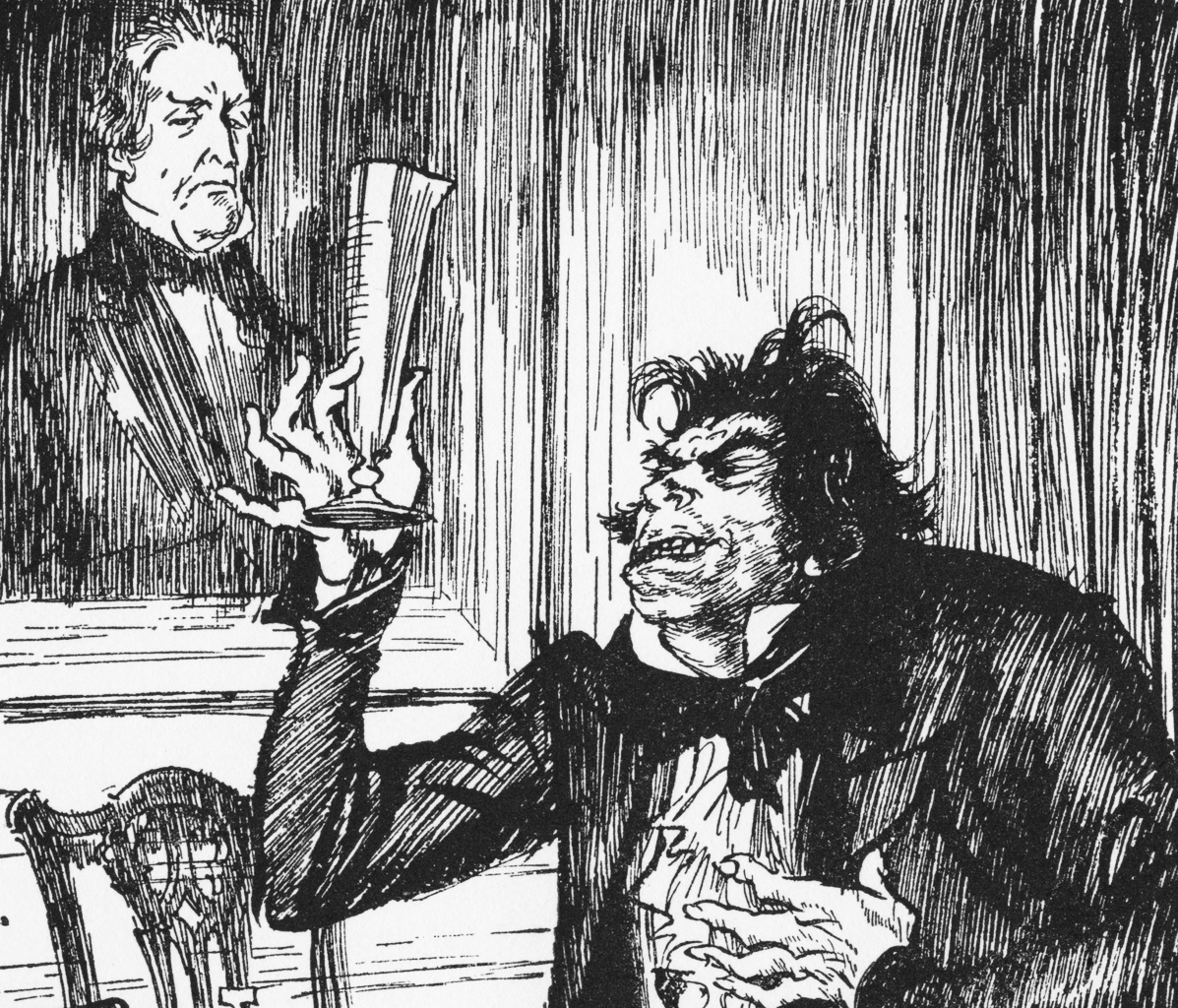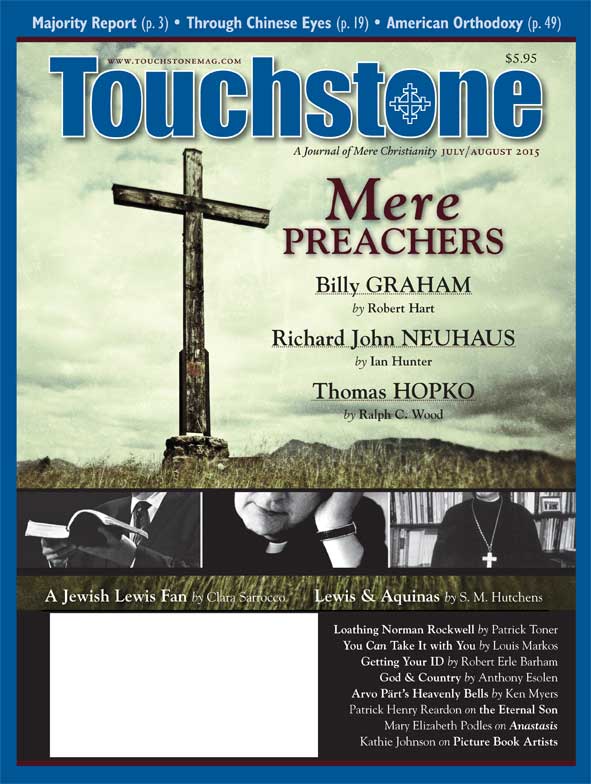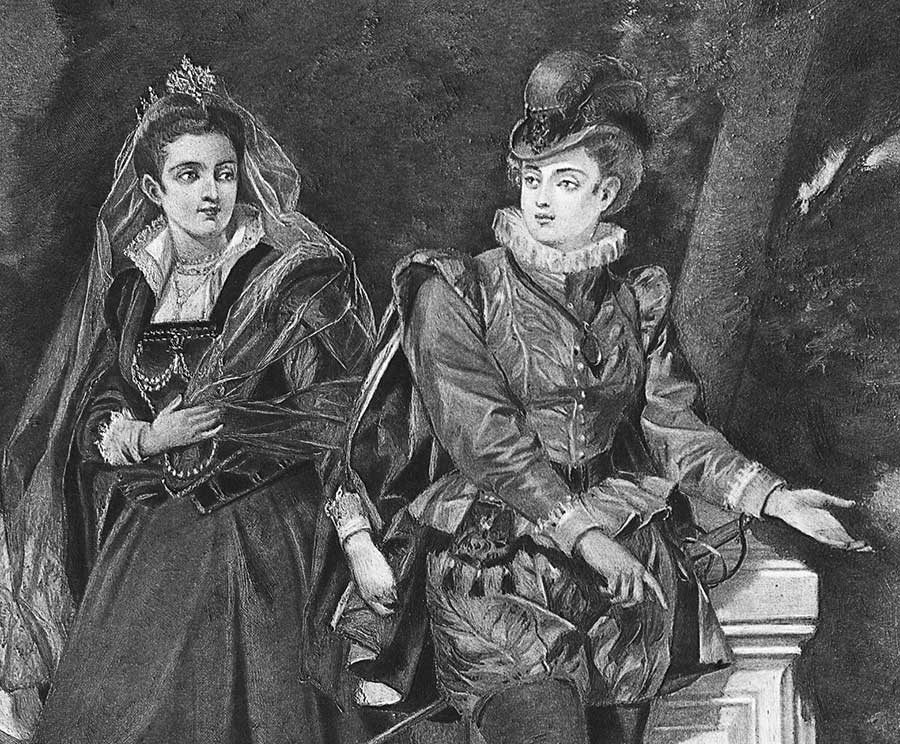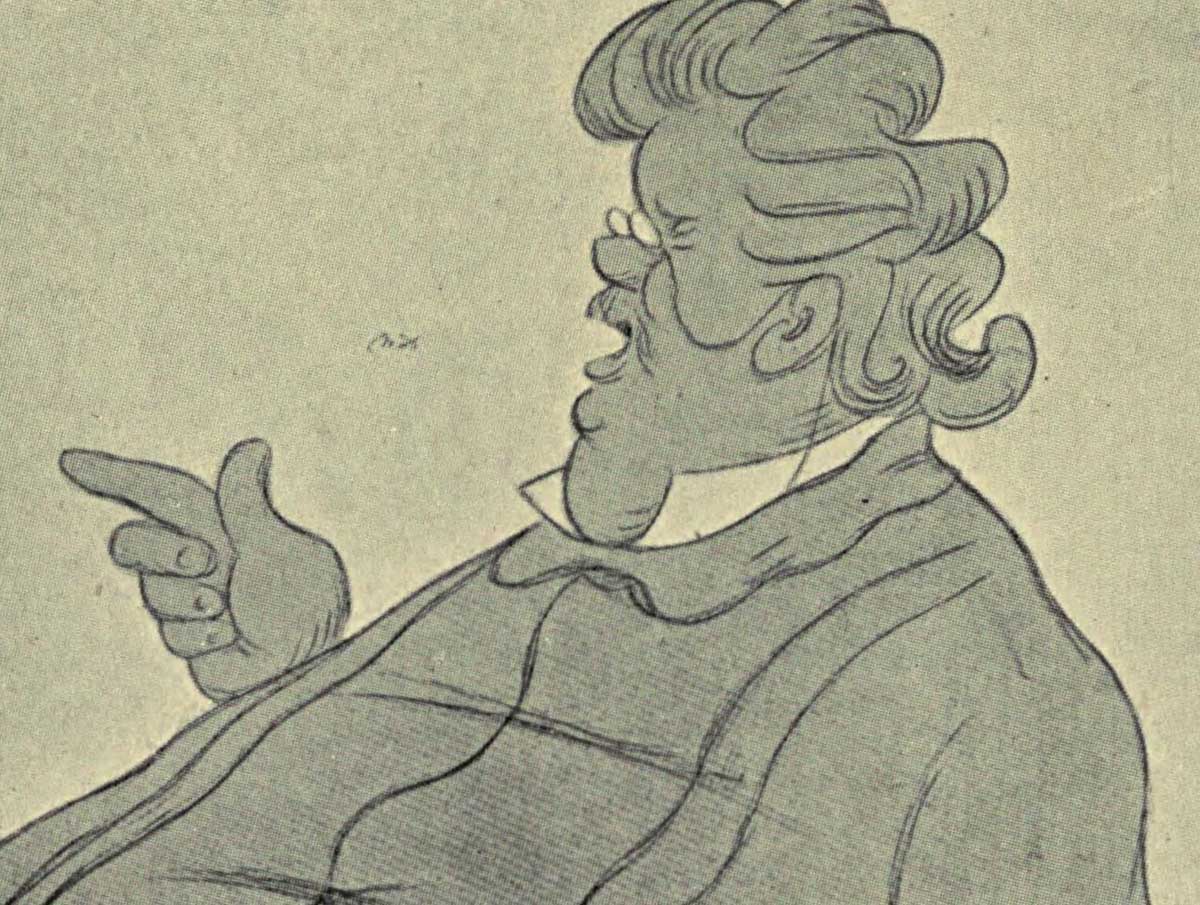View
Your Given Name
Robert Erle Barham on the Cure for Any Identity Crisis
The Strange Case of Dr. Jekyll and Mr. Hyde first appeared in January 1886, and Robert Louis Stevenson's tale still unsettles. Stevenson tells the story of Henry Jekyll, a physician and scientist who discovers a means by which he can indulge his darkest impulses consequence-free, at least for a time. In the last chapter, "Henry Jekyll's Full Statement of the Case," we get the doctor's explanation first-hand: Speaking of "Edward Hyde" and "Henry Jekyll" as two aspects of his personality, Jekyll recounts how he savored the liberty he enjoyed as his alter ego, thanks to the creation of a certain drug. Yet he is surprised to find that Hyde is the self that emerges unbidden and is finally inescapable.
Victorian potions may seem quaint, but one doesn't have to look long for parallels in the use of contemporary technology. We, too, can enjoy secret depravity. Reports about online behavior confirm what one might suspect; namely, that the anonymity afforded by the internet allows us to indulge our inner Hydes. Even the name "troll," which is used to describe those who practice online cruelty, calls to mind Stevenson's villain.
Along with its examination of desire and self-destruction, Stevenson's classic dramatizes the instability of human identity. Despite trying to choose his better self, Henry Jekyll finds that he is an unsteady composite of Jekyll and Hyde. Like other "secular parables" (to borrow a phrase from Karl Barth) that address the self and its relationship to community, moral choice, and desire, Stevenson's classic points us to the fascinating nature of identity. These days, categories of identity in the public square gravitate toward a familiar hub of definitions that seem insufficient. More pressing than that, however, is the existential aspect: concerns about identity play out in one's family, work, and memory. And the stakes are high. Answers to the question "Who am I?" can sustain or cripple someone.
Hydes, Saints & Kings
One of the benefits that I enjoy as a literature professor at a Christian liberal arts college is the chance to study imaginative explorations of identity. These include Sophocles' Oedipus Rex, in which Fate rebuts the self that Oedipus has demonstrated, and seeks to demonstrate still; Homer's Odyssey, in which many-minded Odysseus takes on various identities as he deems expedient in order to get home; and Stevenson's work, in which Henry Jekyll attempts to both indulge and quarantine his baser self.
While literature abounds with unsettling portraits of human identity like The Strange Case of Dr. Jekyll and Mr. Hyde, it offers ennobling and redemptive pictures as well. For example, in Edmund Spenser's allegorical poem The Faerie Queene, Redcrosse Knight receives a vision of his destiny while recovering from imprisonment and despair. What's more, he gets a new name. A holy man named Contemplation tells him,
For thou . . .
Shalt be a Saint, and thine owne nations frend
And Patrone: thou Saint George shalt called bee,
Saint George of mery England. . . ." (x.61)
The gift of his true identity is restorative. It establishes Redcrosse as the patron saint of England, and it assures him of his kinship with those who inhabit the New Jerusalem.
C. S. Lewis employs a similar strategy in The Lion, the Witch and the Wardrobe. In this story, the four Pevensie children are told that two Sons of Adam and two Daughters of Eve are prophesied to rule over Narnia. After the battle with the forces of the White Witch, the children assume their destinies as "King Peter the Magnificent," "Queen Susan the Gentle," "King Edmund the Just," and "Queen Lucy the Valiant."
Works like The Faerie Queene and The Lion, the Witch and the Wardrobe are stirring in part because they point us to Scripture's message about human identity. Scripture tells us who we are—from God's image-bearers in Genesis to recipients of "a new name" in Revelation. We are "children of God," "a new creation," "a temple of the Holy Spirit," "heirs of God and co-heirs with Christ." We are "a chosen race, a royal priesthood, a holy nation, a people for God's own possession." We are saints and kings, yet we still struggle with sin. We don't do the good we want to do, and we practice the very evil we don't want to do, as Paul puts it.
The Gift of Identity
One of my best childhood memories is not even my own. At my wedding rehearsal dinner, my father told a story about taking me to the hospital when I was a child. According to him, I had a particularly bad case of the croup, and my parents, having done what they could to get me breathing well again, decided that dad would take me to the emergency room while mom stayed home with my sister. While Dad and I were waiting to see the doctor, a boy came in with his mother and, whether out of fear or pain, was crying. According to Dad, I walked over to the boy, held his hand, and told him that he
would be okay.
The best I can tell, my memory of this event is derived entirely from my dad's account. But I treasure this story and that my father told it.
In Revelation 2:17, Christ says: "To him who overcomes, to him I will give some of the hidden manna, and I will give him a white stone, and a new name written on the stone which no one knows but he who receives it." I understand Christ's words using the story my father told. In both cases, one in whom trust is placed offers a gift of identity: "a new name." The child that comforted a stranger years ago is a better self and quite unlike the person that must account for all the time since, which includes things like compromise, vanity, shame, and failure. Such a memory is a solace to the conscience, which can persecute. Because this message about who I am comes from my father, it is restorative. And it is even more so with our heavenly Father. Scripture tells us who we are—or rather who he is and who we are in him.
The problem of identity plays out in literature and in life. It practically haunts us. Scripture offers us a way out of this labyrinthine struggle by telling us who we really are. This message can liberate us from false and debilitating versions of identity, whether imposed on us from outside or fashioned through our own efforts or failings, because it comes from someone who knows us absolutely. •
Robert Erle Barham is Assistant Professor of English at Covenant College in Lookout Mountain, Georgia. He and his wife Amy live with their son Robert in Chattanooga, Tennessee, and are members of Lookout Mountain Presbyterian Church.
bulk subscriptions
Order Touchstone subscriptions in bulk and save $10 per sub! Each subscription includes 6 issues of Touchstone plus full online access to touchstonemag.com—including archives, videos, and pdf downloads of recent issues for only $29.95 each! Great for churches or study groups.
Transactions will be processed on a secure server.
more on literature from the online archives
more from the online archives
calling all readers
Please Donate
"There are magazines worth reading but few worth saving . . . Touchstone is just such a magazine."
—Alice von Hildebrand
"Here we do not concede one square millimeter of territory to falsehood, folly, contemporary sentimentality, or fashion. We speak the truth, and let God be our judge. . . . Touchstone is the one committedly Christian conservative journal."
—Anthony Esolen, Touchstone senior editor














